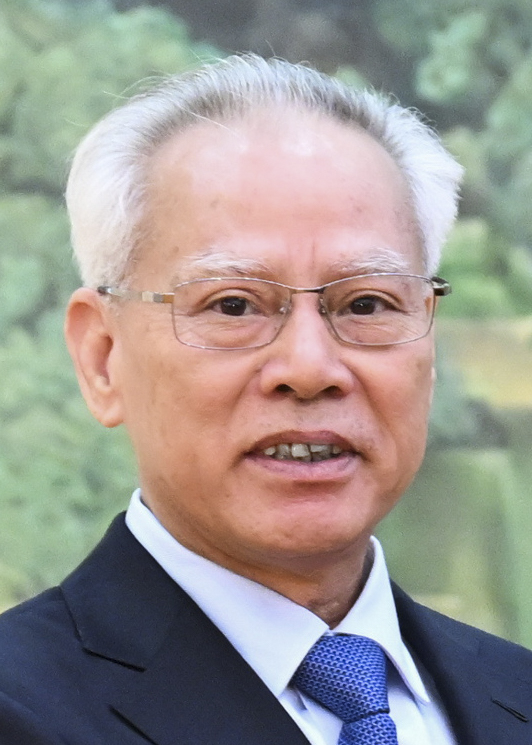
Sam Hou-fai
Macao will further advance the practice of "one country, two systems" to achieve greater success in the special administrative region and contribute to the nation's modernization drive, said Sam Hou-fai, Macao's incoming chief executive.
The former president of Macao's Court of Final Appeal will start his five-year tenure on Dec 20, the same day the SAR celebrates the 25th anniversary of its return to the motherland.
"This is a lifetime honor," the 62-year-old said in a recent interview with China Daily. "It's an important position, and the chief executive has chief responsibility for ensuring the stable and long-term implementation of 'one country, two systems' in Macao."
Sam, who graduated in 1985 from Peking University with a law degree, pursued further studies in Portuguese law and culture at the University of Coimbra in Portugal in the early 1990s. After that, he worked in Macao's legal system.
When Macao returned to the motherland in 1999, Sam, who was then 37, was appointed president of the Court of Final Appeal, the SAR's top court. Since then, he has witnessed significant development in Macao.
Sam said that under the "one country, two systems" policy, Macao has developed for 25 years and Hong Kong for 27 years, and the practice proves that the policy suits the country and the two SARs, and is beneficial for national unity and security.
To leverage the advantages of "one country, two systems", the greatest priority is to safeguard the country's sovereignty, security and development interests, he said.
"The central leadership's support provides us with the confidence to achieve greater success in implementing 'one country, two systems' in Macao," Sam said.
At the same time, China is pushing forward with further comprehensive reforms and promoting Chinese-style modernization, creating broad space and opportunities for the future development of the SAR, he said.
"In this process, we should effectively utilize our unique strengths to contribute to the country's modernization efforts," he added.
Macao will continue to create a transparent and fair investment environment to attract foreign investment in high technology, and to attract and retain advanced expertise and talent, Sam said.
It can also leverage its connections with Portuguese-speaking countries to promote cooperation in areas such as technology, finance, trade and culture, said Sam, who is fluent in Portuguese, one of the SAR's official languages.
The new government is considering establishing a cultural hub that blends Eastern and Western cultures that will also include tourism projects to attract more tourists, according to Sam.
As a trade platform between China and Portuguese-speaking countries, Macao can also assist manufacturing companies, electronics enterprises and new energy companies in the Guangdong-Hong Kong-Macao Greater Bay Area in expanding their presence internationally, he said.
Macao can also be a bridge for coastal provinces like Zhejiang that excel in fishing, since it could assist them in expanding their reach to many Portuguese-speaking countries, most of which are rich in fishery resources, to support their development, he added.
The need for Macao to make more efforts to diversify its industrial structure to reduce reliance on a single industry is a consensus among various sectors of society, and issues including improving the operating conditions of small and medium-sized enterprises are also of significant concern to residents, Sam said.
"We must further enhance the happiness and well-being of the Macao people by improving social security and welfare, with a focus on vulnerable and low-income groups," he said.
"Society has great expectations for the new SAR government, and in our interactions with them, we demonstrate our courage and responsibility to address their concerns. At the same time, Macao residents are providing us with confidence and support."